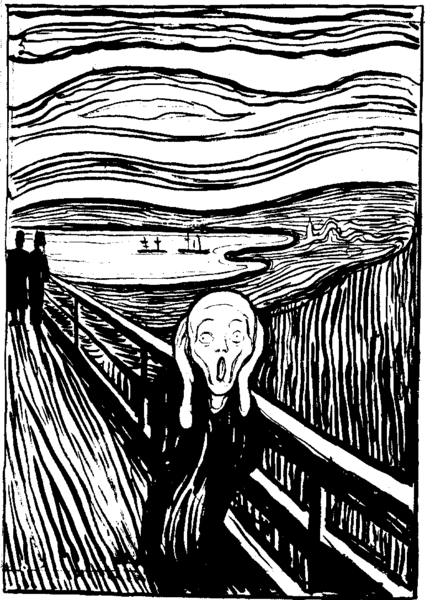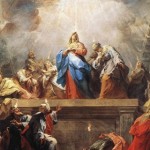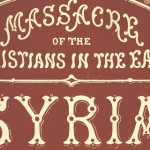
Marriage and family are high voltage topics in any arena these days. So when Pope Francis decided to confront these issues head on and gather all the bishops in a Synod on the Family to discuss just the things that already have everyone in a tizzy, I have to admit I felt a little tense.
So, I have to say I am not surprised that the discussions at the Synod and the resulting Relatio document have ruffled feathers. First of all, as Father Barron so aptly pointed out, the Synod sausage-making process is far from over. Secondly, all gatherings of human beings involve politics, intrigue and normal human behavior. But lastly, the bishops are following the lead of a pope who does not dance in the usual way. Sure, he dances to the tune of Tradition and Scripture, but he dances the bachata, while we are used to the waltz.
So, anyway, just a few reasons I have come up with that may explain and possibly alleviate some of the strong emotions surrounding the Synod. Sometimes, when we step back from intense emotions and search for the source, it helps to dispel fear and anger and replace it with the Lord’s peace.
1. The North-South Difference: John Allen speaks of this dynamic in his book The Future Church. In it, he speaks of the very different ways that Catholics from the Southern Hemisphere, which is growing by leaps and bounds, and people from the Northern Hemisphere approach certain issues. He points out that the South adheres, for the most part, to Church teaching on moral issues. However, the South approaches most issues with an attitude that is distinct from the North. You should read his book if you want more details, it is a fascinating and prophetic look at the current dynamics in the Church.
I would add to Allen’s idea that the South has very different ideas about reception of Communion. For example, if you go to any Spanish-speaking Mass there are plenty of people who do not receive. There are many reasons for this, but one reason I feel is that there is a robust sense of unworthiness when a person is not prepared to receive the Eucharist. The North lacks that, as is evident from our full Communion lines. But this would explain why Pope Francis approaches this issue from the mindset of “How can we get people back in the communion lines?” while some in the North wonder, “How can we get people to sit down if they are not in the proper state to receive?”
2. Need for Hope and Trust: The most concerning thing I see in intense reactions to the Synod proceedings is the lack of trust in God that is evident in the lack of trust in the proceedings of his Church.
Pope Francis addresses this phenomenon in his inspiring closing speech for the Synod:
Many commentators, or people who talk, have imagined that they see a disputatious Church where one part is against the other, doubting even the Holy Spirit, the true promoter and guarantor of the unity and harmony of the Church – the Holy Spirit who throughout history has always guided the barque, through her Ministers, even when the sea was rough and choppy, and the ministers unfaithful and sinners.
I have to say I understand fear and anxiety, but I can only be puzzled by some of the conspiracy theories that emerge when people get worried about what is going on at the Vatican. Before we put on our tin-foil hats and bunker down, I think it makes sense to look at what the Church has taught us:
Divine assistance is also given to the successors of the apostles, teaching in communion with the successor of Peter, and, in a particular way, to the bishop of Rome, pastor of the whole Church, when, without arriving at an infallible definition and without pronouncing in a “definitive manner,” they propose in the exercise of the ordinary Magisterium a teaching that leads to better understanding of Revelation in matters of faith and morals. To this ordinary teaching the faithful “are to adhere to it with religious assent” which, though distinct from the assent of faith, is nonetheless an extension of it. (CCC. 892)
The Lord is giving our bishops “divine assistance.” In the midst of politics, intrigue and human failings, the Holy Spirit guides our Church. This Synod is in the hands of a good and powerful God who brings good from all that happens…
Why does this sound naïve and Pollyannaish in today’s environment?
Because we have lost a sense of hope and trust.
3. Post-Vatican II Trauma: I believe a large group of people in our Church, especially in North American, are suffering from trauma that resulted from the chaos that ensued after Vatican II. I don’t use the word “trauma” lightly. I think some people, especially those in the generation previous to mine, have been greatly impacted by the changes that came after Vatican II, especially the liturgical abuses and moral relativism that were evident in some places.
I can’t relate too much to this. I grew up in the bubble of a Catholic charismatic community and then left the Church. By the time I got back, Saint John Paul II had stabilized things and Benedict XVI had calmed the waters. But I have experienced liturgical abuse and the poo-pooing of Church teaching – I lived in California for five years after all. So, to some extent I can understand. I too react strongly to these things sometimes.
However, I think the particular shrillness, bitterness and lack of charity that can emerge at these vital junctures may be due to trauma that has not been worked through. This is just a theory, an effort on my part to make sense of what, on the surface, appears to be a lack of Christian charity and confidence in the Holy Spirit’s power.
– – –
So, in light of the struggles that many of us are facing in the midst of change, let us pray for one another and for our Church, and especially for the Synod on the Family. Let us pray more than talk, pray more than worry, pray more than divide, pray more than argue, pray more than get lost in pessimism.
Pope Francis asks this of us at the closing of the Synod:
Dear brothers and sisters, now we still have one year to mature, with true spiritual discernment, the proposed ideas and to find concrete solutions to so many difficulties and innumerable challenges that families must confront; to give answers to the many discouragements that surround and suffocate families.
One year to work on the “Synodal Relatio” which is the faithful and clear summary of everything that has been said and discussed in this hall and in the small groups. It is presented to the Episcopal Conferences as “lineamenta” [guidelines].
May the Lord accompany us, and guide us in this journey for the glory of His Name, with the intercession of the Blessed Virgin Mary and of Saint Joseph. And please, do not forget to pray for me! Thank you!
Will you join me?












